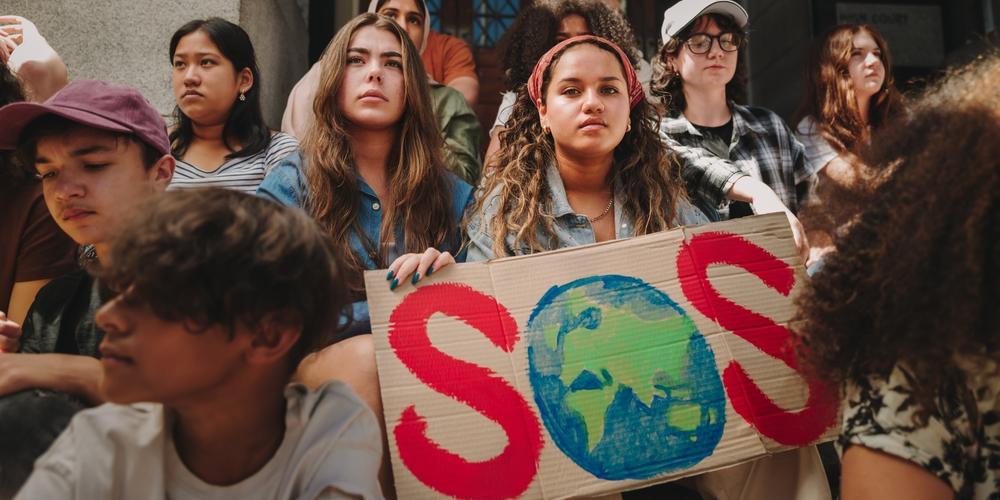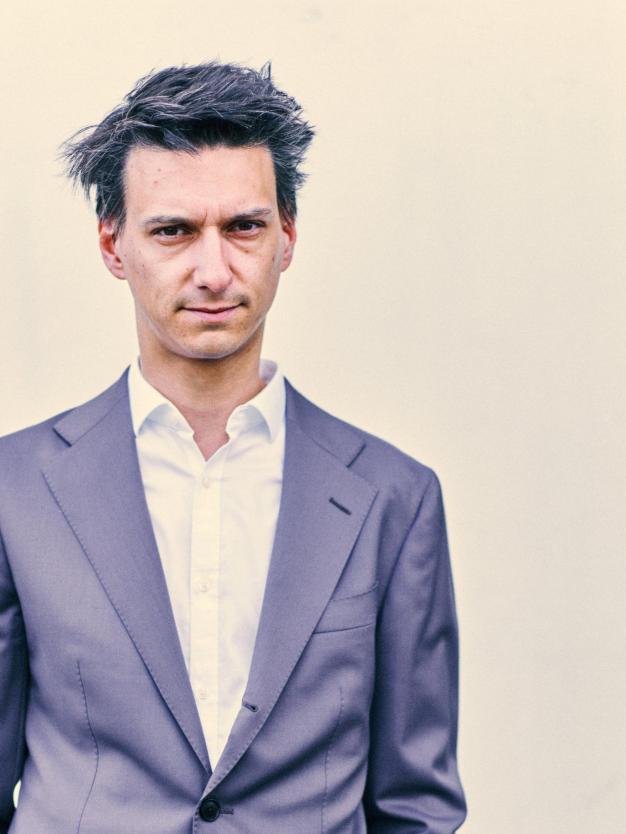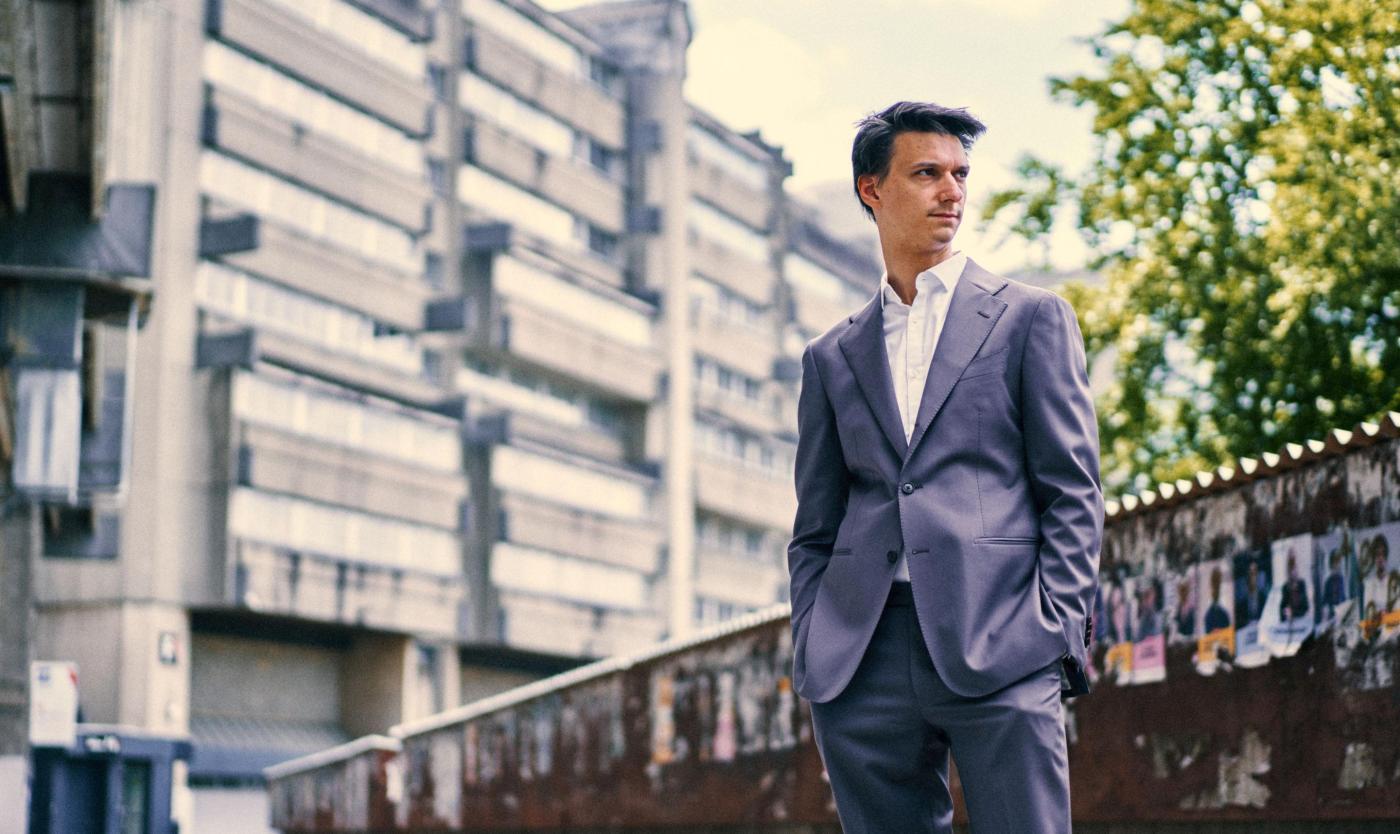
According to studies, a lot of young people are suffering from “climate anxiety”. Some adjust their life choices – not wanting children, for example. The fear of climate change can also turn into fatalism: the world is dying anyway, so why should we adapt our behaviour? VUB climate scientist Wim Thiery wants to temper that fear.
Professor Wim Thiery wants to make people more aware of climate change and ensure that the transition to a climate-neutral society accelerates. He uses various models, observations and satellite data to look at climate extremes and analyse lifetime exposure to them at different ages, in order to identify experiences of impacts. He strongly believes in the impact of climate youth on policy and the importance of science communication. “In a short period of time, young people have managed to make everyone in society aware of the urgency of climate change. I am impressed by their in-depth knowledge of climate science.”

Among your students, is there climate anxiety?
“I don’t see much of that among my students. But there is scientific evidence from psychology that young people are concerned about climate. When I discuss certain climate studies during lessons [he teaches the course Land-Climate Dynamics at the VUB, among others], some students do realise that the climate is worse than they thought. Yet there is no reason for fatalism. We have all the solutions today to stop global warming. The technology is there: just think of windmills, solar panels, heat pumps and the like. And they are also cheap technologies: they cost less than what the consequences of global warming would cost us. My students understand there are many opportunities we need to seize. I’m not a fatalist myself, but what is true is that raising awareness of those risks is not as smooth. Because we do now have to choose. Either we are going to roll out these new climate-friendly technologies on a large scale so we reap the benefits in the future with liveable cities, healthier lives and longer lifespans. The other option is to suffer the damage.”
“Personally, I think that as an important knowledge institution in one of the richest countries in Europe, we could be even more ambitious.”
The VUB has a climate plan, but is it ambitious enough?
“It is very important that the VUB now has a roadmap to be climate neutral by 2050. That target has to be met worldwide by then to limit warming to 1.5°C. Personally, I think that as an important knowledge institution in one of the richest countries in Europe, we can be even more ambitious.”
What could the VUB do more of?
“We should aim to do better than that global target. If we look at the carbon budget – that’s what we are still allowed to emit globally in total to stay within 1.5°C – it will be used up in six to seven years. If we look at how we distribute those emissions worldwide, then as a rich and developed country that has been emitting CO2 for a long time, we don’t really have any right to it anymore. What the VUB can do concretely to shift up a gear is to focus even more on sustainable education and research in order to provide society with solutions and experts in the transition. In terms of business operations too, our emissions have to come down as quickly as possible. This can be done by increasing the insulation of buildings, electrifying heating, accelerating the roll-out of heat pumps and renewable energy via solar panels on the roofs.”
What can students do?
“As both a student and a consumer, you can do a lot. For example, don’t fly, or fly less. You can also try to persuade your parents to break into their savings to pay for an energy-efficient renovation of their house. Eating less or no meat: every little helps, but the impact is limited to your own emissions. Besides that role as a consumer, you can also assume your role as a citizen. You can create support for an ambitious climate policy in the voting booth, you can communicate on social media about the importance of taking measures against climate change, you can argue for a safe future or remind politicians of their responsibilities. You can also work on climate litigation. In Belgium, 60,000 people recently took various governments to court. Those governments were subsequently convicted twice and must now adjust their ambition to emit 55% less by 2030. That can be called historic. It proves that, as an individual, you can indeed have a positive impact far greater than your personal emissions. The European Green Deal emerged from the driving force of young people’s climate protests. That is particularly hopeful.”
Bio Wim ThieryWim Thiery was appointed research professor at the VUB in 2017, where he founded the BCLIMATE Group. He undertook research exchanges to Montreal, Berlin and Zurich and conducted field campaigns to Uganda, Rwanda and DR Congo to install automatic weather stations on Lake Kivu and Lake Victoria. Thiery co-authored the IPCC Special Report on Climate Change and Land (2019) and the Sixth Assessment Report (2021). His expertise includes climate change, climate extremes, regional and global climate modelling, land-atmosphere interactions, land management, early warnings of storms, energy meteorology and modelling of climate effects on a global scale. In 2017, he was chosen by Forbes magazine for its 30 Under 30 Europe list, which brings together “the brightest young entrepreneurs, innovators and game changers in Europe”. In 2023, he received the VUB Excellent Supervisor award.

Foto credits: Thomas Sweertvaegher
My climate future
Wim Thiery developed a website where you can see the future impact of global warming on your life. Enter the year of your birth and see how many more forest fires, river floods, crop failures, tropical cyclones, droughts and heat waves you can expect in your lifetime in the event of warming of 1.5°, 2.4° and 3.5°. While perhaps not very hopeful, the aim of this online tool is to raise awareness and call for more climate action.